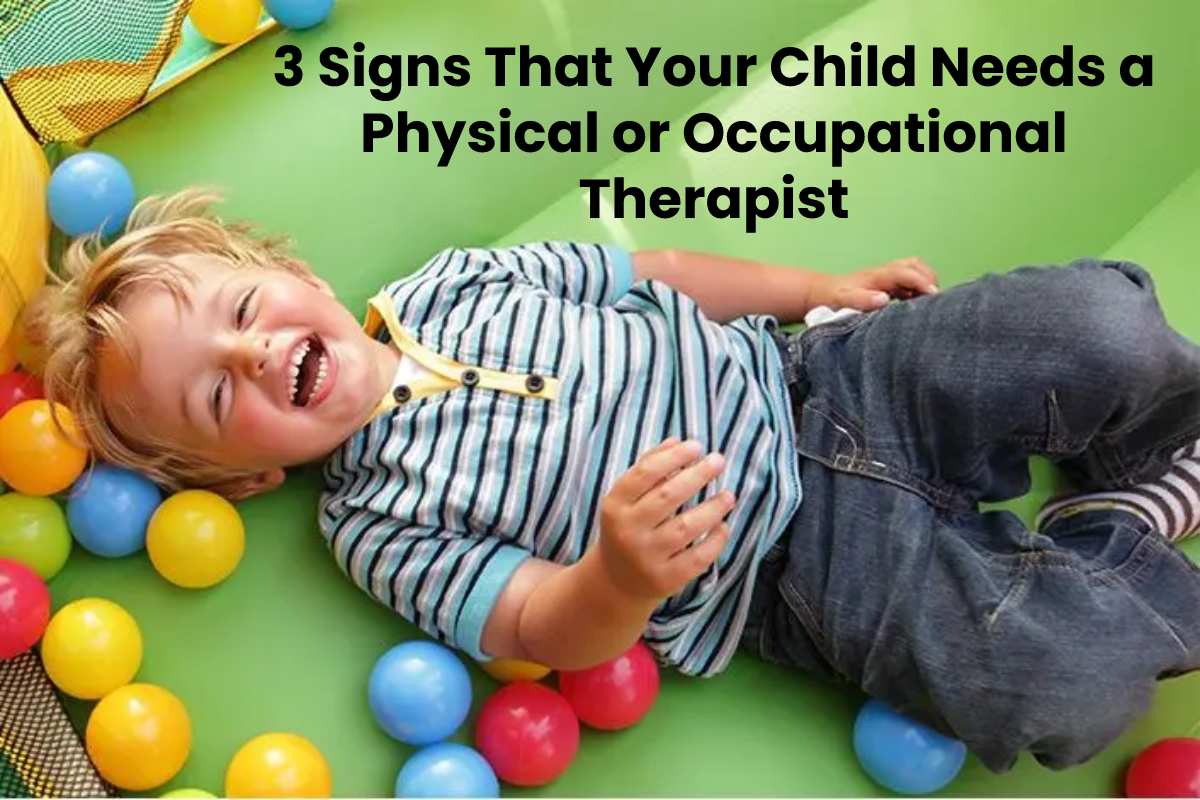Table of Contents
Child Needs a Physical or Occupational Therapist
Musculoskeletal impairments, neurological disorders, and developmental delays can affect children’s ability to interact with the world around them and learn essential life skills. These conditions may be present from birth or acquired later in life. In either case, physical therapy in South Fort Collins, Colorado, can help teach children to learn the skills they need to function independently in school and at home. Here are some signs that your child could benefit from physical or occupational therapy.
1. Issues With Gross or Fine Motor Skills
Motor skills are those that involve controlled and purposeful movement. Gross motor skills involve the major muscle groups, while fine motor skills pertain specifically to the dexterity of the hands. Problems with gross motor skills affect a child’s ability to walk, hop, climb stairs, and participate in recreational activities, such as playing catch. Physical therapy in Fort Collins, CO, to correct problems affecting gross motor skills specifically works to improve balance, coordination, endurance, and strength.
Problems with fine motor skills affect children’s ability to draw, use utensils, string beads, or use scissors. If not properly addressed, they could make it more difficult for a child to use a computer, write, or perform other activities essential for school and life. Physical or occupational therapy to address fine motor skills works on controlling and strengthening the small muscles of the hands.
2. Problems With Sensory Processing
Children with sensory processing problems have difficulty interpreting the information they receive from their vision, hearing, smell, taste, and touch. Sometimes they are undersensitive, meaning that they may move around constantly trying to touch everything in an attempt to make up for the sensory deficit. Sometimes they are oversensitive and overreact to sensory data that should not otherwise be overwhelming. Physical or occupational therapy should be able to help in either case.
3. Difficulty Achieving Developmental Milestones
Developmental milestones are skills that infants and toddlers are expected to learn by a certain age. From the time your child is born until he or she is about 5, your doctor tracks his or her developmental milestones and notes whether they are occurring on time. For example, 2-year-olds should be able to walk steadily, while a 1-year-old should be able to at least crawl. Other developmental delays that can be concerning include the following:
- Not sitting by 8 months
- Only turning the head to one side
- Not weightbearing on legs for 6 months
- Walking only on tiptoes
If your child is not meeting developmental milestones. There may be some underlying medical problem that is preventing his or her progress. Physical therapy can help evaluate the cause of the issue and formulate a program. To help bring your child up to the developmental level appropriate for his or her age.
Non-Invasive Options for Children
Physical therapy for kids is designed for children to have fun while making progress learning skills vital for success in school and in life. The earlier the intervention begins, the better the results your child is likely to achieve. Therefore, if you have reason to believe that your child may be in need of physical. Or occupational therapy, make an appointment for an evaluation right away.

